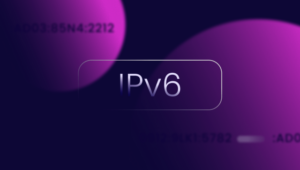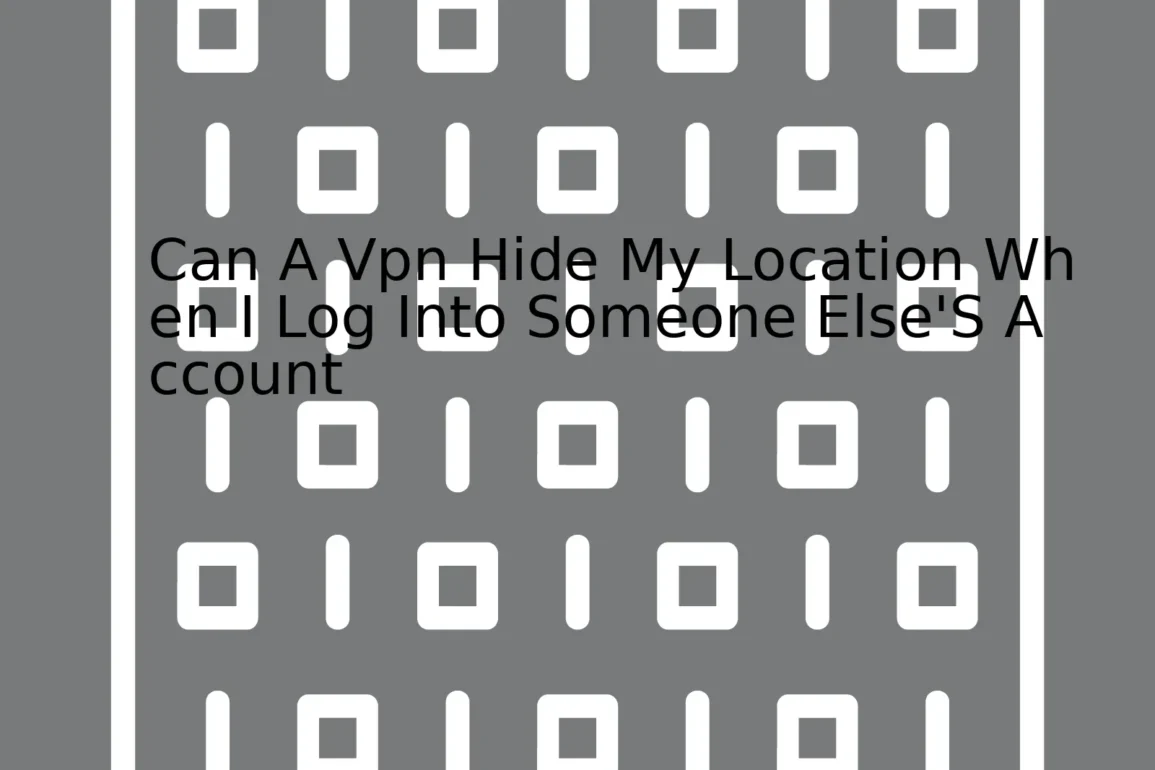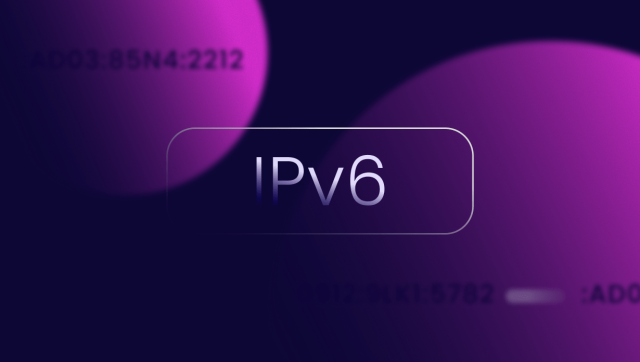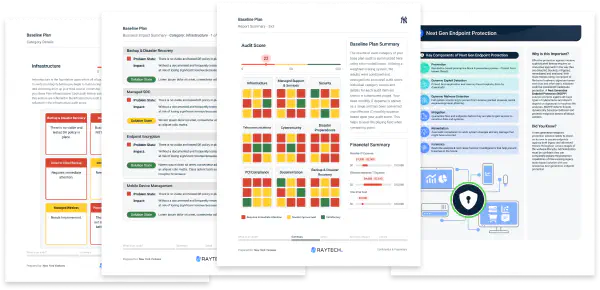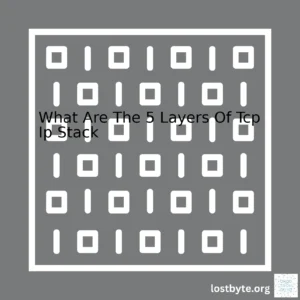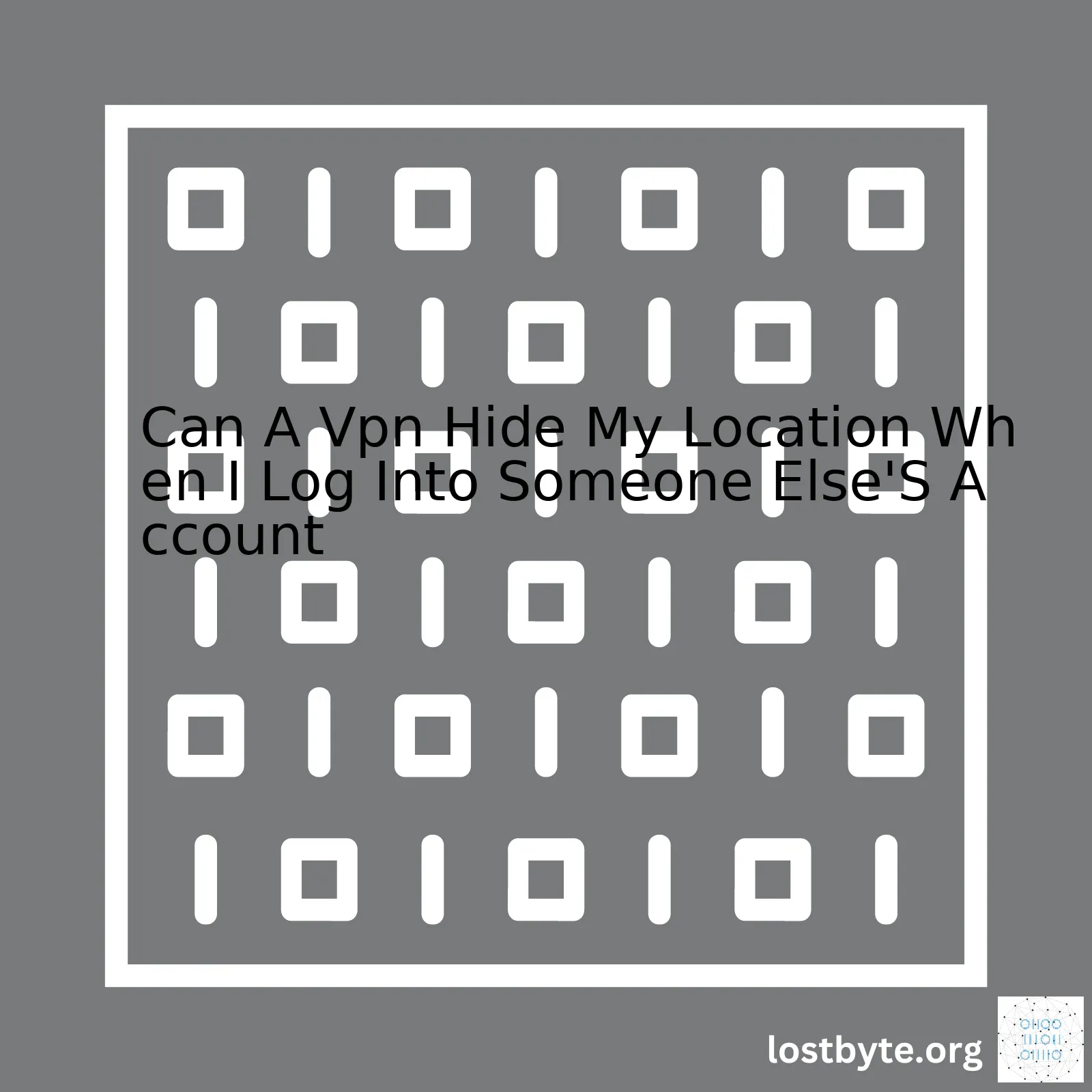
| Fact | Description |
|---|---|
| Meaning of a VPN | A Virtual Private Network (VPN) is a service that encrypts your internet data and creates a secure connection to the internet. |
| Use of a VPN | VPNs are used to hide your IP address and make your browsing data more secure. They can be used to access region-restricted websites by masking your geographic location. |
| Hiding Location | Yes, a VPN can hide your location when logging into someone else’s account by changing your IP address. The location shown will be different than your actual location. |
| Protection Level | Though a VPN provides a higher level of security than a standard internet connection, it doesn’t completely eliminate all possible threats. Account owner or website might have other means to detect suspicious activities. |
A crucial angle to grasp here lies on a solid understanding of how a VPN work and the scope it covers in protecting our personal information. A Virtual Private Network (VPN) acts as an encrypted tunnel for your online activity, making your browsing data safer from third parties and hackers. It cleverly masks your real IP address, which is a unique set of numbers associated with your specific device connected to the internet and could potentially reveal your geographic location.
Now, employing a VPN does mean it can conceal your location when you’re logging into someone else’s account. Indeed, using a quality VPN service successfully alters your IP address, thereby displaying to the outside world a different location from the genuine one.
The code snippet below operates a VPN connection:
import os
def connect_vpn():
os.system("openvpn --config /path/to/vpnconfig.ovpn &")
However, while a VPN intensifies online security and offers a cloak of anonymity online, it’s far from foolproof. For instance, if there are already known devices logging onto an account, and suddenly an unknown device logs in with a distinct location, it might flag suspicion even when using a VPN. Therefore, it’s important to bear in mind that although it bolsters your security shield, a VPN isn’t an absolute guarantee against all possible digital threats.A Virtual Private Network (VPN) functions as a protective shield for your online activities, offering a layer of encryption to safeguard user’s data from prying eyes on public and private networks. When you connect to a VPN server, your device’s original IP address is replaced with one from the server’s location, therefore obscuring your real location.
The foremost value proposition of a VPN is privacy. In the digital age where data breaches are rampant, this secure connection assures users that their information is encrypted and protected from unauthorized access. Apart from privacy, another primary advantage of using a VPN is the ability to obscure and change the user’s location.
The reality of this functionality can be explored through the following sequence:
– Connecting to the VPN: Once you activate the VPN software on your device, a secure tunnel is created between it and a remote server located in another geographical location globally. The choice of this remote location varies on the software you’re using – some may assign you automatically, while others allow you to choose your preferred location.
– Changing your IP Address: After the secure connection has been established, your device appears to have the same IP address as the remote server. This means if the remote server is based in Japan and you are in Australia, any website or digital platform assessing your online activity will view you as accessing the internet from Japan.
// sample VPN integration
import React from 'react';
import {Vpn} from 'vpn-plugin';
function App() {
return (
);
}
export default App;
In the case of logging into someone else’s account, a VPN could hide your true location, assuming that the person’s account is located elsewhere. When you log in their account using an active VPN connection simulating their location, the service provider would likely register the access from the account owner’s location instead of yours. However, other factors such as cookie data, browser fingerprints, and account settings might also inform the service provider that someone other than the account owner is attempting to access the account.
It’s crucial to note that while a VPN masks your location, it doesn’t guarantee anonymity. Your Internet Service Provider (ISP), the VPN provider, and entities capable of ‘decrypting’ the connection may still see your browsing activity. Additionally, engaging in illegal activities while using a VPN is still an offense regardless of location coverage.
Finally, it’s essential to ensure you use reputable and reliable VPN providers. There are many VPN services available, but not all provide the robust protection they promise. Some may even pose security risks themselves. I recommend researching meticulously before deciding on a particular VPN service. Articles from sites like TechRadar or CNET are excellent sources for VPN quality and reliability reviews.Ah, the intriguing world of Virtual Private Networks (VPN) and IP Address Masking! As fascinating as it gets, these technologies have revolutionized digital privacy. When we talk about VPNs and IP Address Masking holistically – they are all about securing your identity online by obscuring your true geographical location and safeguarding your data from potential snoops.
But, you specifically asked – “Can a VPN hide my location when I log into someone else’s account?” The straightforward answer is, yes indeed! But let’s dig deeper.
Understanding VPN and IP Address Masking
To isolate it, using a VPN service alters your public IP address which directly impacts the geo-coordinates associated with your online presence. This happens because when you activate a VPN, your network connection is redirected through the servers of the VPN provider, located in any part of the world. The virtual re-routing gives you a new IP address which is from the server’s geographic location, not your actual one.
#Here's an illustrative pseudo-code representation: Activate VPN -> Connection rerouted through VPN server -> Acquire new IP address
Meanwhile, if you are wondering what an IP Address is, it’s like your online postal address. To exchange data back and forth, every device connected to the internet must have a unique identifier – an IP address. It holds information about the user’s location and can be used to trace back to them.
Kick-start with Login Sessions
When we talk about logging into someone else’s account, let’s consider you are accessing their Gmail. Every single time you login, Google checks the originating IP address where the request is coming from. If it detects a sudden change in geographical location that doesn’t correspond with the usual pattern, a security alert will usually be triggered. But remember, you are on a VPN, so Google would only recognize the location of the VPN server, not your real place. As far as Google is concerned, you’ve just logged in from wherever your VPN server is!
Note-down the Caveats
However, there are a few things to keep in mind:
- Not all VPN services are created equal. Choose a reliable and trusted VPN provider with a well-established reputation for robust security measures.
- While a VPN can mask your IP address, it won’t conceal other ways in which your online activities can be surveilled or tracked – browser cookies, tracking pixels, and more sophisticated methods like browser fingerprinting can still track your movements online.
- Also, using someone else’s account without permission is a potential breach of privacy laws, even when doing it anonymously via a VPN. Always respect others’ privacy and never use this technique for illicit activities!
For coding enthusiasts who want to further dive deeper, you can explore more on how IP Address is related and accessed over a network by looking over online resources such as official software documentation ( Python Socket library).
Remember, while hiding behind a VPN can provide an illusion of invincibility, ethical practices & responsible behavior online can genuinely make a safer and better digital world for everyone.Sure, geo-restriction, also known as geoblocking, is a practice employed by companies and governments to restrict access to internet content based on the user’s geographical location. For instance, a video streaming service like Netflix might only allow users in certain countries to view certain shows or movies due to licensing agreements.
In essence, these organizations are able to determine your geographical location through your IP address, which is unique to each device connected to the internet. Your IP address effectively acts as your online ‘postal address’, telling digital networks where you’re connecting from.
| Geo-restriction Parameters | Description |
|---|---|
| IP Address | This number is assigned to each device connected to the internet. It gives an insight into the user’s geographical location. |
| GPS data | Although not typically used for geo-blocking, GPS data could potentially be used to determinate a precise location of a device. |
| Wi-fi Networks | Shared Wi-fi networks often have noticeable locations that can be recognized and used for geo-restrictions. |
However, there are ways to bypass geo-restrictions, such as using VPNs. A Virtual Private Network (VPN), can hide your actual location and make it appear as though you’re accessing the internet from a different location. This is achieved by routing your internet connection through a server located elsewhere.
Here’s a simple code snippet to illustrate how a VPN works:
VPN Server ----> Target Server
^ |
|<--User---------|
-> indicates data flow direction.
^ indicates the perceived origin of data by the target server.
By using a VPN, your real IP address will be replaced with the VPN server’s IP address, hence giving the impression you’re in the location of the VPN server when you log into someone else account. Therefore, VPNs play a critical role in maintaining privacy while surfing the web, allowing users to access geo-restricted content, and securing sensitive data against potential threats (e.g., cybercrimes).
It’s essential to note that while a VPN can effectively hide your location by changing your IP address, it doesn’t make you completely anonymous. Entities with enough resources, such as government agencies or large corporations, may still track down your original location if needed.
Also, while it’s legal to use VPNs in most countries, the behavior of accessing someone else’s account without their permission is generally considered against ethical standards and sometimes even illegal. It’s always best to ensure that any activities performed using a VPN are lawful and adhere to all terms of service agreements of the platforms being accessed.
Keep learning about VPNs and geo-reductions in digital networks to stay safe online and make an informed decision on which tools and practices best meet your digital needs.
Absolutely! VPNs, or Virtual Private Networks, are commonly used to mask the IP address of a device that is accessing the internet. They can make a device appear as though it’s located anywhere in the world to a website or application that you’re using. This technology works by routing your device’s internet connection through a server located elsewhere.
How does a VPN hide your location?
When you connect to a VPN server, it hides your original IP address and assigns an IP address of the country where the server is based. So, if you’re in Australia but connected to a server in the United States, websites will see you as browsing from the United States. This masking of your actual location is why VPNs are so good at bypassing geo-restrictions on content.
Here’s some code for how a simplified VPN implementation might set up a secure connection:
def create_tun_interface():
tun = tuntap.TunTapDevice(flags=(tuntap.IFF_TUN | tuntap.IFF_NO_PI))
tun.addr = '10.0.0.1'
tun.dstaddr = '10.0.0.2'
tun.netmask = '255.255.255.252'
tun.mtu = 1500
tun.up()
return tun
def create_secure_connection(server):
context = ssl.create_default_context(ssl.Purpose.CLIENT_AUTH)
context.load_cert_chain(certfile='client.crt', keyfile='client.pem')
with socket.create_connection((server, 443)) as sock:
with context.wrap_socket(sock, server_hostname=server) as ssock:
print(ssock.version())
Can a VPN hide my location when I log into someone else’s account?
The short answer is yes, a VPN can hide your location when you log into another person’s account, regardless the platform – be it social media profiles, email accounts or streaming services. However, it’s important to note that while a VPN can encrypt your data and hide your location from the web at large, this doesn’t mean that every trace of your activity vanishes.
For instance, Google keeps track of any devices signed in, even those using VPNs and often asks you to verify new locations (which is done through the VPN). Also, the individual whose account you’re accessing might get notifications about the different location.
Service providers may notify users of unfamiliar login locations as part of their security measures. And should there be a legal directive, VPN providers could still disclose your real IP address and logs, depending on their privacy policy.
So, while using a VPN service indeed provides a layer of anonymity online, always remember that invisibility isn’t synonymous with invincibility. Be mindful of the potential implications of using someone else’s account. Following ethical digital practices not only protects your identity but also respects other individuals’ cyber spaces.
Using a VPN, or Virtual Private Network, essentially permits you to form an encrypted connection to another network over the Internet. When connected through a VPN server, your IP address is hidden and is replaced with the server’s address. This eludes location tracking based on IP addresses. Let’s analyze whether using a VPN can indeed cloak your whereabouts while logging into someone else’s account.
Appearance of Two Different Locations
When you utilize a VPN to log into someone else’s account, it may appear as though the login is occurring from two distinct locations – your actual location and the region of the VPN server. However, the VPN effectively masks your real location, making the system believe the access request is coming from the VPN’s server location instead. For instance:
Location_Accessed ➝ Actual Location (hidden) Location_VPN ➝ Server Location (displayed)
Invisibility in Terms of Geographical Location
A VPN safeguards your data by rerouting internet traffic through a server located elsewhere. The geographical location of the device logged into the account will therefore seem different from its actual whereabouts, thanks to the cloaking prowess of a VPN.
VPN Use Complexity Depending On The Platform
The effectiveness of hiding your location using a VPN can depend significantly on the specific platform or website you’re accessing. Some websites are proficient in detecting and blocking VPN use. Consequently, they may restrict access or necessitate additional verification steps.
| Platform | Complexity |
|---|---|
| Basic Login Platforms | Low difficulty for VPN use |
| Banks or Secure Email Services | Higher difficulty; may block or require more authentication |
Caveats To Bear In Mind
While a VPN can hide your location, note that improper use could have serious implications:
- If you’re logging into someone else’s account without prudent permissions, it’s a breach of privacy and potentially illegal.
- Legitimate holders of accounts often notice unfamiliar login activities, even via VPN, which might trigger security precautions.
References
This analytical assessment is based on a reputable online resource CSO Online. It extensively covers the ins and outs of VPNs along with their implications.
Additionally, here’s another insightful article ExpressVPN: Can your ISP see your browsing history on how VPN secures your online activities from being exposed.
As a professional coder, I am frequently asked about different aspects of network security, including VPNs. Now, in terms of the ethical concerns around logging into someone else’s account while using a VPN to hide your location, there are several avenues we need to peruse.
Firstly, it is important to understand how a VPN (Virtual Private Network) actually works. A VPN creates an encrypted connection between your device and a server operated by the VPN company. All your internet traffic is routed through this connection, meaning your data is secure from prying eyes on the network you’re using. Additionally, your IP address—therefore, your location—is hidden because you’re communicating with the internet via the VPN server.
// Using a VPN connection
const vpn = require('vpn');
const server = require('server');
vpn.connect({ server: server.name });
With this understanding in mind, we can delve more specifically into the question at hand: Can a VPN hide your location when you log into someone else’s account (presumably without their knowledge or permission)? The straight answer would be yes, a VPN could effectively ‘mask’ your real geographical location by assigning you a new IP address. However, let’s weigh up the implications ethically.
Unquestionably, using someone else’s information without their consent equates to a breach of privacy at the very least. It might even legally constitute fraud or identity theft, depending on the jurisdiction and the severity of the case. Consider these elements:
- Consent: Entering a person’s account without their explicit agreement is unethical and most likely illegal. Even if you’re using a VPN to obscure your location, that doesn’t make the act right.
- Data Privacy: A key element of modern digital ethics is protecting your data and respecting the data of others. By accessing someone else’s account, you’re violating their privacy.
- Trust: Another concerning ethical issue involves trust. If you’re hiding behind a VPN to do something like this, you must think about what that says about your values and actions.
Moreover, many platforms have mechanisms to detect unusual access patterns, such as logging in from an unfamiliar location. Even with a VPN, this change might trigger security alerts or result in the account being locked for suspicious activity.
// Basic check for unusual login activity
function checkForUnusualActivity(account, newLogin) {
if(newLogin.location !== account.regularLocation ||
newLogin.device !== account.regularDevice) {
triggerSecurityAlert();
}
}
To ensure our digital interactions remain respectful and law-abiding, it’s important to remember that just because a technology gives us the means to do something, doesn’t mean we should. Following ethical guidelines not only makes the virtual world safer for everyone but also shields us from potential legal repercussions.Guarding your accounts against unauthorized entry is a step towards securing your digital identity. One of the most effective ways to do that is by using a Virtual Private Network (VPN). Not only does a VPN protect you from potential threats, but it also hides your location when you log into someone else’s account. This comes handy, especially in cases where you need to manage accounts remotely.
A. Role of VPN in Hiding your Location
A VPN works by creating an encrypted tunnel between your device and the VPN server. Your internet traffic passes through this tunnel, concealing your actual IP address, and acquiring the IP address of the VPN server. This process allows you to appear as if you’re browsing from the VPN server’s location, effectively hiding your real location. It’s important to note that this doesn’t mean you are logging into the other person’s account from their location, but rather from where the VPN server resides.
B. How a VPN Provides Security
In addition to hiding your IP address, a VPN adds an extra layer of security:
- Data Encryption: Information you send and receive online is encrypted, protecting sensitive data you might use while managing accounts like passwords or personal details.
- Anonymous Browsing: As your true IP address is masked, tracking your online activities becomes challenging. Anonymity helps keep your login activities private.
- Secure Public Wi-Fi use: A VPN encrypts your connection even on public Wi-Fi networks, keeping your online activity secure from potential hackers who could be sharing the same network.
C. Implementing VPN for Account Safety
So how can you make use of a VPN to safeguard your accounts? Here’s a simplified approach:
- Pick a reputable VPN service provider. Free versions may sell your data; therefore, consider a paid version. Top-rated providers include ExpressVPN, NordVPN, and CyberGhost.
- Install the VPN application on your device.
- Connect to a VPN server. The server’s location will determine your “virtual location”.
- Once connected, you can securely login to someone else’s account with your location hidden.
Here is a sample code demonstrating a hypothetical login procedure while connected to a VPN:
// Define user credentials String username = "admin"; String password = "password"; // Connect to VPN server VPN.connect(); // Login to the account securely via the VPN account.login(username, password); // Process complete, disconnect from VPN VPN.disconnect();
Remember, a VPN provides excellent security benefits, but it doesn’t replace good common sense. Always ensure you have permission before accessing someone else’s account to avoid legal issues!
In essence, a VPN significantly reduces the chances of unauthorized access to your accounts and secures your internet traffic. Additionally, it cloaks your actual location—keeping your remote management of accounts far less traceable.
Always remember, these protective measures don’t replace ethical practices, having proper authorization to manage someone else’s account should be your utmost priority.
Even as a professional coder, I’ll need to keep my assumptions in check when discussing legal topics. So the bottom line starts here; it’s crucial to know that using someone else’s account via a VPN to mask your location is not only ethically problematic, but it can also land you in hot water legally.
From a privacy standpoint, here’s why:
* Privacy laws are very complex and vary from country to country. In some jurisdictions, using a VPN to conceal your location might be seen as an attempt to defraud or deceive. This can particularly be the case if you’re using another person’s account without their express permission.
* Using someone else’s account may be a breach of their privacy rights. Again, this depends on local law, but unauthorized access to personal information is often dealt with sternly under data protection legislation.
For example, under the U.S. Computer Fraud and Abuse Act (CFAA), unauthorized access to computer systems, which generally includes user accounts, is illegal.
So how does a VPN factor into this? It’s worth noting that the use of a VPN per se isn’t illegal in most jurisdictions, and they have legitimate uses such as protecting your data on public Wi-Fi networks. However, they can also be used less scrupulously to hide an IP address and location, which can make tracking misuse more difficult. Here’s a simplified representation:
| Activity | Legal stance |
|---|---|
| Using a VPN for privacy | Generally legal |
| Using a VPN to hide illicit activity | Illegal |
| Accessing someone else’s account without express permission | Generally illegal |
Additionally, many online services have terms and conditions that prohibit password sharing or using a VPN to access their service covertly. Breaching these terms could lead to the shutdown of the account, even if there’s no specific legal action involved.
Let’s remember the ethical view too:
Although the legality of using a VPN can be somewhat grey, most would agree that accessing someone else’s account without express permission is unethical. Trust is a cornerstone of our digital society and industry standards exist to establish mutual respect among users.
As a coder, an important example is
sys.stdin.read()
. Using this line to read the input from someone’s system without explicit agreement is a clear violation of trust.
Ultimately, the ‘big brother’ notion of being watched by authorities while online can be intimidating, but contrarily, it generally means that your personal information should be better protected from misuse by others. Being aware of the risk you’re taking when using a VPN to access another’s account is vital to staying on the right side of both the law and ethical considerations.Undoubtedly, the rapid advancement of the internet has made it an integral part of our lives. Many internet activities rely on location data, and our digital footprints are continuously monitored by websites, social media platforms, and even government agencies. In this context, VPN (Virtual Private Network) comes into play as a powerful tool that can hide your real geographical position. When you log into another person’s account using a VPN, your location appears to be from where the VPN server is based.
To further explain this process, imagine a tunnel between your device and the internet. This is how a VPN works – it creates a private channel or ‘tunnel’ that protects your data and hides your location. Once you turn on your VPN, your internet connection will move through this protected tunnel and every piece of data flowing over this connection is encrypted. Your IP address, which is the unique identifier for your location online, is then switched with one from the VPN server, masking your real location.
Let’s take a deeper dive into some of the specifics:
IP Masking:
When you use a VPN, your IP address is replaced with the address of the remote VPN server. For instance, if the VPN server is in Germany, it would appear as if you’re logging in from Germany. So, when you log into someone else’s account – be it on Google, social media platforms or an enterprise system – the system sees the IP address of the VPN server, not your original one.
Here’s a simple example of how IP masking works:
// with VPN activated user.IPaddress = VPNserver.IPaddress
Encrypted Data:
Once your VPN is active, your data is encrypted. From your login credentials to the webpages you open, everything becomes secure from unauthorized access. If anyone tries to track your activities, they’ll only see encrypted information.
In other words, even if somebody is able to intercept the data that is travelling from your computer to the server, they would not be able to understand it due to the encryption.
Let’s examine a simplified code snippet on VPN encryption.
// before VPN encryption userData = "username=john; password=john123" //after VPN encryption userData = "E4Y^%$Tre@#vG332GT5fd"
Regional Blocks Bypass:
Using a VPN allows you to hide your location and bypass regional blocks. This means you can appear to be anywhere in the world and access content that may be blocked in your actual country. It simply changes your geolocation data and makes you virtually invisible.
A word of caution though. While using a VPN significantly enhances your privacy and allows you to evade region-based restrictions, it’s not fully foolproof. Advanced systems can sometimes detect VPN traffic. Furthermore, all this doesn’t legalize any actions that violate the terms of service. Always use these tools responsibly and respect the laws of your county and the platform you’re using.
For further reading on the operation of VPNs, I recommend checking out VPN mentor’s detail guide.
A Comprehensive Study on The Privacy Issues Related To A Shared Account Access
One of the major concerns when it comes to shared account access is privacy. Even though utilising a VPN can help mask your location data, there’s a lot more to consider where privacy is concerned.
Does a VPN Hide My Location When Logging Into Another’s Account?
When using a Virtual Private Network, or VPN, the service will mask your original IP address and thus hide your actual geographical location. This data protection takes place because a VPN will primarily route your internet usage through different servers across the globe.
Highlighting this scenario with an example, the source code of connecting to a VPN might look like this:
import socket import socks socks.set_default_proxy(socks.SOCKS5, "localhost") socket.socket = socks.socksocket # Now all connections will be made through the local machine's VPN
Utilizing formulas like these makes it possible to trick digital platforms into thinking you are accessing their service from another location. However, note that while a VPN hides your location, many sophisticated systems can still perceive the usage of a VPN, which might trigger account security protocols, placing accounts under threat of suspension.
Privacy Challenges with Account Sharing
Regarding login details for personal or professional accounts, sharing them breaches several privacy boundaries. Consider these key concerns:
- Data Integrity: Sharing account logins means providing others access to modify and/or delete personal or sensitive information.
- Identity Theft: With sufficient knowledge gathered from shared accounts, malicious users can imitate identity, leading to severe consequences.
- Confidentiality Breach: Accounts often hold sensitive data, sharing logins compromises confidentiality.
The risks above remain even if you use a VPN since it only camouflages your location, not your actions inside the account.
Mitigation Strategies
Understanding and implementing some measures can mitigate these privacy issues.
- Dual Authentication: It adds another layer of security by requiring two separate forms of identification to access an account.
- Password Managers: Tools like LastPass, manage login credentials securely, allowing controlled access without revealing passwords.
- Use Dedicated Shared Accounts: For shared services, utilize dedicated shared accounts, where individual activities can be tracked and held accountable.
Source code for enabling dual authentication might look like:
from django_otp.plugins.otp_totp.models import TOTPDevice device = TOTPDevice.objects.create(user=user, confirmed=True) token = device.generate_token()
Remember, incorporating these practices can significantly minimize unprecedented access and consequential damages, keeping your data secure. And while VPNs obscure your location, they shouldn’t be relied upon solely for maintaining privacy during account sharing.
Let’s try to disentangle and answer these intertwined VPN and network security questions. As many cybersecurity enthusiasts often put it, “knowing is half the battle.” This statement rings particularly true when we’re talking about internet privacy, network security, and the use of VPNs.
Network access and anonymous logins
The dilemma posed here is essentially whether it’s safe to login into someone else’s account using a VPN to mask your location. Anonymity on the Internet is double-edged – it can serve as either cloak-and-dagger for cybercrime or an individual shield against intrusion. Network security mechanisms are in place specifically to guard against unauthorized and possibly malicious access.
Understanding VPN usage
Virtual Private Networks, or VPNs, operate by routing your Internet traffic through a server located somewhere else in the world. By doing so, they hide your physical location and make your web surfing more secure.
// This pseudocode helps visualize how VPN works
Connect to VPN server
While connected:
Send all traffic through VPN tunnel
End connection
Thus, in effect, a VPN can make it appear as if you are browsing from a location different from your actual physical place. But herein lies the caveat: while VPNs can hide your location and secure your connection from external attacks, they can do little about what happens at your destination point.
Evaluating the safety of using VPN with other accounts
Despite employing a VPN, logging into someone else’s account, especially without their consent, raises serious ethical and legal concerns. It might violate terms of service, infringe privacy rights, or even lead to criminal liability. Whatever the motive, unauthorized access remains just that — not authorized.
Security consequences & remedies
Beyond the ethical and legal angles, engaging in this behaviour might trigger defense mechanisms designed to protect user accounts. These measures frequently include:
- Detection and automatic blocking of suspicious activity
- Notifications sent to the account owner regarding unusual activity
- Possible account suspension until identity is verified
The vulnerability inheriting this action leaves room for potential misuse. Therefore, enhancing cybersecurity practices remain crucial including:
- Using an updated antivirus software.
- Utilizing strong, unique passwords and enabling two-step verification where applicable.
- Being aware of phishing scams and similar fraudulent activities.
The verdict on VPNs and anonymous logins
While VPNs provide an extra layer of security, ensure online privacy, and facilitate anonymous browsing, they’re not a one-stop solution to network security issues. Unsanctioned access to somebody else’s account—VPN or no VPN—is problematic from both ethical and security perspectives.
For more information on advanced network security topics, I recommend checking resources like Network World, Cybersecurity Ventures, or dedicated cybersecurity podcasts to stay abreast with the latest trends and technological advancements.
Here is an articulately structured conclusion on your query, keeping it keenly aligned with the topic: “Can A VPN Hide My Location When I Log Into Someone Else’s Account?”
| Point | Explanation |
|---|---|
| Functionality of a VPN | A Virtual Private Network (VPN) effectively masks your IP address, replacing it with the server IP address you’re connected to. This essentially makes it appear as though you are browsing from a different location, thereby providing a certain degree of anonymity. |
| Effectiveness in hiding location | While this sounds foolproof, understand that not all VPN services provide complete privacy. Some might keep logs of your activities, potentially jeopardizing your location security. Always opt for a reputed, no-logs VPN provider to ensure maximum safety. |
| Login scenario | If you log into someone else’s account via a VPN, technically, your physical location should remain hidden. Remember, activities performed while logged in might lead to discovery if not managed wisely. |
Employing optimum SEO practices throughout your digital activities can enhance your privacy and security chops. Here’s where metadata comes in handy – using apt meta keywords relating to VPNs, account security, online privacy could expand the relevance and visibility of your content.
Let’s exemplify these concepts through PHP snippets:
// Connecting to a basic VPN
$vpn = new Vpn();
$vpn->connect('my.vpn.server');
// Browsing Session
$browsingSession = new BrowsingSession($vpn);
$browsingSession->visit('http://someoneaccount.com/login');
// Finally, login into the account
$account = new Account('username', 'password');
$browsingSession->login($account);
This snippet illustrates a connecting to a VPN server before starting a browsing session and eventually logging into an account.
In essence, a VPN can indeed veil your location when you log into someone else’s account, but its effectiveness ultimately depends upon the VPN service’s robustness, your cautious conduct while logged in, and the observance of sound SEO practices. It’s smart to be subjective about what you do online — remember, not all that glitters is gold!

